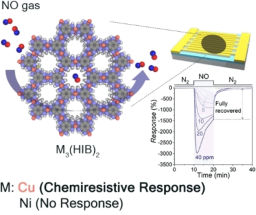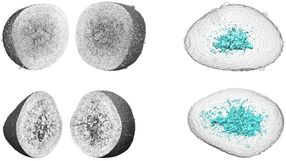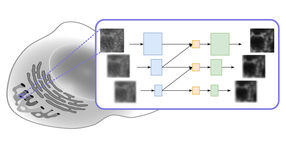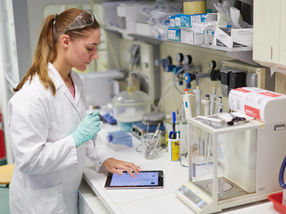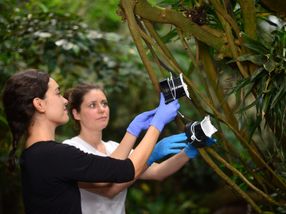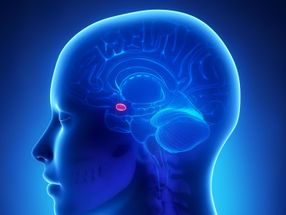Easier to produce drugs using new biosensor
Chalmers researcher Andreas Dahlin has developed a biosensor with an artificial membrane, which means that membrane-bound proteins can retain their natural structure and function. The method facilitates the study of the function of the proteins, which could be of major significance in the search for new drugs. One-third of all our proteins have the cell membrane as their natural environment, where they perform several of the most basic life-preserving biological processes. Approximately half of the most common drugs today are directed at membrane receptor proteins. Understanding membrane proteins is therefore vital in modern drug development.
The new biosensor is based on nanostructures which comprise holes in thin metal films where different types of membrane with membrane proteins can be formed. This makes it possible to analyse the features of the proteins, which are normally sensitive and unstable outside their natural environment.
"All processes which are being developed are spontaneous under the right conditions and take place 'by themselves'. The thesis also shows how biochemical reactions that take place in the membrane can be studied by measuring the colours on the nanostructured surface," he states.
The colour changes can be attributed to the local chemical environment on the nanostructured metal surface and provide information about different processes in which the proteins being studied are involved.
"Greater knowledge of the reactions in membrane proteins will lead to a greater understanding of how a drug functions, which will ultimately contribute to our ability to develop several drugs more rapidly," says Andreas Dahlin.
The colour phenomenon arises due to what are known as plasmons - heat wave movement that arises when light induces electrons to move in a fixed rhythm on a metal surface. The strong colours generated by plasmons have been utilised by people for thousands of years.
Most read news
Other news from the department science

Get the analytics and lab tech industry in your inbox
From now on, don't miss a thing: Our newsletter for analytics and lab technology brings you up to date every Tuesday. The latest industry news, product highlights and innovations - compact and easy to understand in your inbox. Researched by us so you don't have to.


![[Fe]-hydrogenase catalysis visualized using para-hydrogen-enhanced nuclear magnetic resonance spectroscopy](https://img.chemie.de/Portal/News/675fd46b9b54f_sBuG8s4sS.png?tr=w-712,h-534,cm-extract,x-0,y-16:n-xl)
